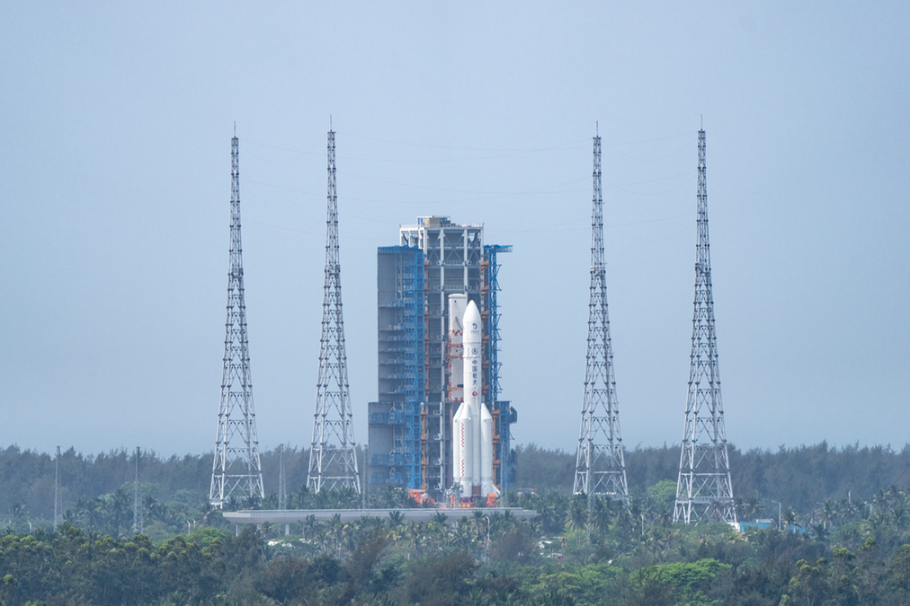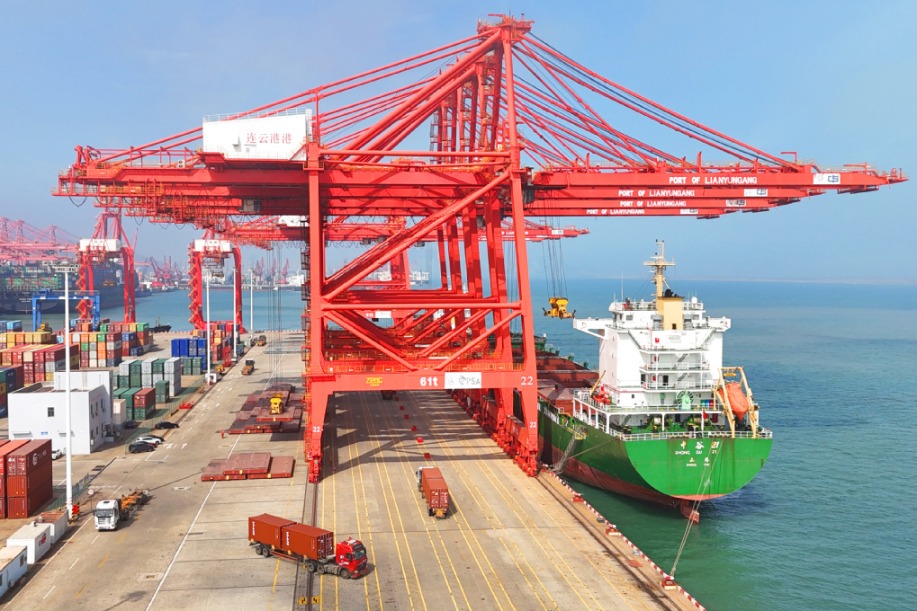US urged to stop rhetoric, manage risks
By ZHANG ZHIHAO | CHINA DAILY | Updated: 2020-08-08 08:37

Defense minister tells counterpart to focus on areas where interests align
Chinese State Councilor and Defense Minister Wei Fenghe urged the United States to stop its erroneous rhetoric and deeds, better manage maritime risks, and avoid making dangerous moves that may escalate the situation.
In a phone call with his US counterpart Mark Esper on Thursday, Wei reiterated China's position and principle on topics including the South China Sea, Taiwan and the US stigmatizing China. The two sides also exchanged views on bilateral ties and military relations, as well as the next phase of military exchanges, according to a statement released by the defense ministry late Thursday.
Esper reinforced his priorities for China-US defense relations to focus on preventing and managing crises, reducing risks and cooperating where interests of the two nations align, according to a statement by the Pentagon on Thursday.
The phone call came as the two countries are seeing mounting tension in the South China Sea and the Taiwan Straits due to increasingly provocative patrols by the US military and the recently proposed arms sale and visit by high-ranking US officials to Taiwan.
Chinese experts have warned that the China-US tension in trade, technology and media now has a dangerous tendency to boil over into military-to-military relations, turning the once stabilizing factor in bilateral ties into a new area of contention.
The South China Sea Strategic Situation Probing Initiative, a Chinese nonprofit research institution, said 67 US surveillance aircraft patrolled the South China Sea last month, nearly double the number in May. These aircraft have also surveyed China's coastal provinces of Guangdong, Fujian and Zhejiang, it said.
On Wednesday night, an E-8C surveillance aircraft flew within 110 kilometers off the coastline of Guangdong province, making it the first time a US spy plane had approached China's coasts at night in recent months, the institute said. Nighttime reconnaissance is widely considered a sensitive maneuver since it allows the enemy to gather key intelligence for night combat or surprise attack.
Hua Chunying, Foreign Ministry spokeswoman, commented on the US move on Thursday on Twitter, saying the US has sharply increased its frequency and intensity of military reconnaissance on China's doorstep. "Clearly, these have nothing to do with freedom of navigation or flight, but sheer military provocation, pressure and coercion," she wrote.
Regarding Taiwan, Reuters has reported that the US State Department is considering selling at least four SeaGuardian surveillance drones and associated equipment to the island for an estimated price tag of over $600 million.
The proposed arms sale coincides with the planned visit by US Secretary of Health and Human Services Alex Azar to Taiwan in the coming days-a move that has drawn protests from China's Foreign Ministry and the Taiwan Affairs Office of the State Council.
In a news briefing on Friday, Foreign Ministry spokesman Wang Wenbin said that China staunchly protests the proposed US arms sale to Taiwan, saying the move can "seriously undermine China's sovereignty and security interests".
Conflicts may continue
As China-US relations deteriorate, Esper's call may just be a "smoke screen" to discourage China from taking further actions against the US, as the US military will likely increase its presence at China's doorstep in the coming months, said Yuan Zheng, a researcher at the Institute of American Studies at the Chinese Academy of Social Sciences.
"In this context, Esper's call for risk control and dialogue serves as a safety valve that reads: the US doesn't want a war with China, but it wants to keep poking at China and cross its bottom line, so don't do anything irrational given the stakes are now so high," he said.
"We must keep a clear head about what the US says and what it actually does," Yuan said. "We must also brace ourselves and be prepared for more US hostility. This includes enhancing our combat readiness to deal with provocation and emergencies."
On Friday, China Central Television reported that the naval aviation units from the Southern, Eastern and Northern Theater commands of the People's Liberation Army have recently conducted intensive training, including one-on-one aerial dogfight, nighttime takeoff and other challenging subjects.
























